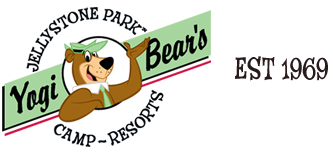Camping is one of the most popular past time activities in the U.S. The industry is on an upward trajectory with more and more households flocking RV parks for the first time. Approximately 6 million new families have started camping since 2014. The increasing popularity makes owning a family campground a lucrative business.
The Numbers That Make sense
A 2018 North American Camping Reports shows the growth within the camping industry as follows:
- In 2017, 41.8 million Americans went for camping trips. 73% of these now participate in the activity at least three or more times in a year.
- Seventy-seven million households have someone who camps regularly, accounting for six out of every ten homes in America.
- There were 1.4 million new households that participated, with Millennials and Generation Xers forming a third of the campers.
- The industry maintained an annual growth rate of 2.7%, with 14,500 businesses raking a net income of over $7 billion.
- The average return on investment in the campground industry is 15%, with other real estate markets providing an average of 8.6%.
The market growth points to family campground business and RV parks being solid investments worth considering. Investing in campground rentals, recreational amenities, and modern cabins may offer a steady source of income through high occupancy rates.
Franchising Vs. New Entrant
Starting in the Campground business can be quite hectic. The parks demand high capital investments as the industry ditches the traditional ’campfire’ model to more resort-like facilities. Franchising offers a simpler way to success over venturing out on your own.
You can easily secure finances from lenders as you ride on the brand name of the franchise. Additionally, you benefit from their nationwide branding and marketing that may result in high occupancy rates in your park. You also have a high rate of success working with an established brand, with some branches reporting over 33% ROI every year.
However, you should also put in mind the various franchise restrictions within the contract. Franchises usually have standards set in place for basic amenities. The business undergoes regular inspections to ensure that your park keeps up with the franchise reputation. Get to understand the various restriction clauses and the royalty rates paid out.
Do Your Research
Just like any business, you need to understand the market metrics before risking your money. Dig deeper on the daily running of an RV park. Create a clear road map through a business plan on how you will run the business. Have an honest evaluation of your skills and the staffing you may require to cover for your weaknesses. Look into your marketing plan, your competition and the overall industry analysis.
Franchising may offer an easier way out as most campground franchises can provide solid business plans to help you grow. Furthermore, you will be working under an established business that may guide you through the secrets to success. A clear business model allows you to focus on customer satisfaction that leads to higher occupancy rates.
In Conclusion
A properly managed RV park offers a lucrative investment opportunity with a higher ROI than the average real estate market. Working under a franchise gives you a higher chance of success that heading out alone. The franchisor will hold your hand as a guide as you learn the ropes within the industry. If you are looking to venture into this industry, feel free to reach out to us today.


